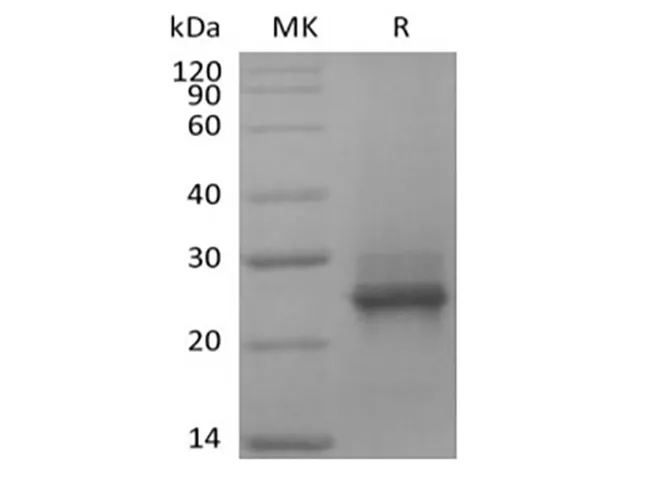Recombinant Human KRAS(G12C, N-6His)
CAT:
763-PKSH033895-02
Size:
10 µg
Price:
Ask
- Availability: 24/48H Stock Items & 2 to 6 Weeks non Stock Items.
- Dry Ice Shipment: No




Recombinant Human KRAS(G12C, N-6His)
- Background: K-Ras belongs to the small GTPase superfamily, Ras family. As other members of the Ras family, K-Ras is a GTPase and is an early player in many signal transduction pathways. It is usually tethered to cell membranes because of the presence of an isoprenyl group on its C-terminus. K-Ras functions as a molecular on/off switch. Ras proteins bind GDP/GTP and possess intrinsic GTPase activity. Plays an important role in the regulation of cell proliferation. Plays a role in promoting oncogenic events by inducing transcriptional silencing of tumor suppressor genes (TSGs) in colorectal cancer (CRC) cells in a ZNF304-dependent manner. Besides essential function in normal tissue signaling, the mutation of a K-Ras gene is an essential step in the development of many cancers. Several germline K-Ras mutations have been found to be associated with Noonan syndrome[4] and cardio-facio-cutaneous syndrome. Somatic K-Ras mutations are found at high rates in Leukemias, colon cancer, pancreatic cancer and lung cancer.
- Abbreviation: KRAS
- Synonyms: CFC2, KRAS2, Ki-Ras, RASK2, c-K-ras
- CAS Number: 9000-83-3
- UniProt: P01116
- Accession Number: AAH13572.1
- Host: E. coli
- Origin Species: Human
- Tag: N-His
- Sequence: Thr2-Cys185(Gly12Cys)
- Field of Research: Signal Transduction,Epigenetics and Nuclear Signaling,Cancer
- Purity: > 95 % as determined by reducing SDS-PAGE.
- Bioactivity: Not validated for activity
- Reconstitution: Please refer to the printed manual for detailed information.
- Molecular Weight: 26 kDa
- Shipping Conditions: This product is provided as lyophilized powder which is shipped with ice packs.
- Storage Conditions: Generally, lyophilized proteins are stable for up to 12 months when stored at -20 to -80°C. Reconstituted protein solution can be stored at 4-8°C for 2-7 days. Aliquots of reconstituted samples are stable at < -20°C for 3 months.
